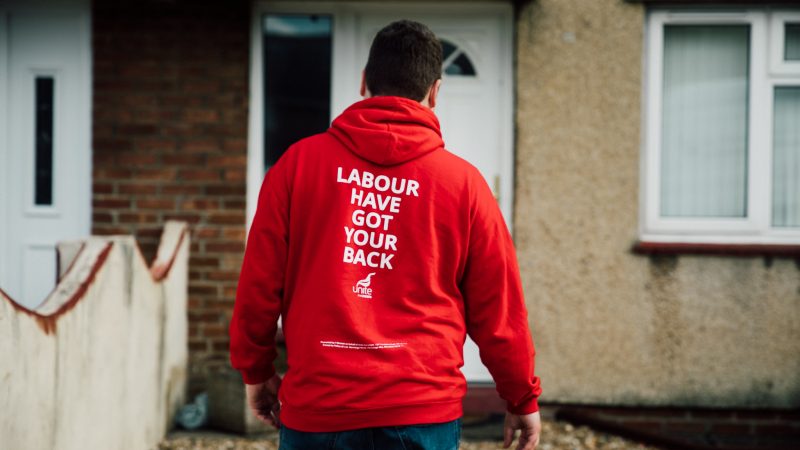
With the PM seemingly having committed to the general election taking place in the second half of 2024, candidates need to make the most of the limited time available to prepare themselves.
The first thing to emphasise is that a ‘working assumption’ is not the same as a guarantee. The PM has not ruled out a May election, so any preparations need to have this timing in mind. No one should delay in preparing themselves.
Each candidate needs to think about their winning equation, which involves a mix of the three critical variables of all political campaigns: time, people and money.
Of course, all Labour candidates require a deep understanding of the political landscape and effective communication strategies. Some candidates are products of their local areas, know them well and are entrenched in the local party machinery.
Preparation is the key (as time is limited). Here are five crucial challenges for which every Labour candidate should be prepared in creating their own winning scenario:
1. Know why you are running
It is important to craft a compelling narrative. It may be the party name that dominates for some, but the reality is that voting for the same political party is a thing of the past. So, as we have seen in the US, there is a need to develop a clear and authentic personal story that connects with local voters.
That means being able to craft a core message that seeps throughout every aspect of your campaign. In other words, what is the unique narrative that differentiates you from other candidates? This story must be believable, credible, memorable and authentic. A candidate needs to spend real time on this step, as any narrative that smacks of being too ‘pre-packaged’ will not work.
2. Develop your finance plan and budget now
It can be ever so tempting to move ahead quickly with a campaign, publishing materials and getting a social media presence. But understanding the rules of the game, navigating campaign finance regulations and mapping out finances should be an early task.
Be aware of spending limits, reporting requirements and donation regulations. If in any doubt about what you can and cannot do, then seek advice. If not, then you, and those doing your reporting, will get into trouble with both civil and, maybe even, criminal penalties. It would potentially end a career before it has even got going.
3. Understand your audience
Getting to the heart of the key constituencies needed to win your specific region is a critical step. Knowing the demographics, values, concerns, key groups and individuals helps in becoming part of any community. Even if the scale of the task for winning could seem insurmountable, a candidate could be laying the foundations for future success. And given the current polls, who knows what could happen.
This means tailoring the messages delivered so that they resonate with the local population. That is not about rigid message discipline but instead, recognising the diversity within a community and addressing the needs of those communities. Get to grips with the history of local issues, what the position of others is and where the discussions take place (forums, in-person meetings, discussion groups etc). There is often a national position to take, but the more local you can be, the better.
4. Master digital communication
Social media fashions have changed from when we first logged on over a decade ago, and there is no getting away from embracing digital platforms for effective communication. For any candidate, that means developing a robust online presence, engaging with voters on social media and leveraging data analytics, even at a local level, for targeted outreach. All that needs to happen well before an election, otherwise the community you are trying to engage won’t be on the same channels.
There is also the need to consider how to respond as well. Consider whether the X of a 2024 election is any better at controlling bots and the spread of fake news and hate speech than the Twitter of the 2019 election? Mastering digital communications also means knowing how to respond to misinformation.
Help and advice will doubtless be available from the excellent digital team and others in the party, but they will become increasingly stretched, and the resources available to help individual candidates diminishes, especially in the election campaign proper, and for those not in key target seats.
5. Build strong grassroots campaigns
Establishing a solid grassroots campaign to connect with voters on a personal level, based around your narrative, remains at the heart of preparation.
Door-to-door canvassing, meetings, and community engagement are essential, but so is activity on hyper-local social media sites. The power of the local activist base should never be underestimated here. Some may be prepared to stay indoors and post on such groups, and that can be as useful as any door-knocking.
Every candidate has role to play in preparing Labour’s campaign
The PM’s apparent announcement may have been designed to try to buy him and the Conservative Party more time to turn around the polls, but it does open up more preparation time. And do not forget, if a Labour candidate does not necessarily grasp that opportunity, then the competition certainly will.
Winning an election is about getting the right mix of time, people, money, messages and messengers. The Labour Party has time to prepare a winning campaign, but each candidate needs to recognise their own role and responsibility in preparing to win as well.




More from LabourList
Government announce SEND reform in schools white paper
SPONSORED: ‘Industrial hemp and the challenge of turning Labour’s priorities into practice’
‘A day is a long time in politics, so we need ‘action this day’’